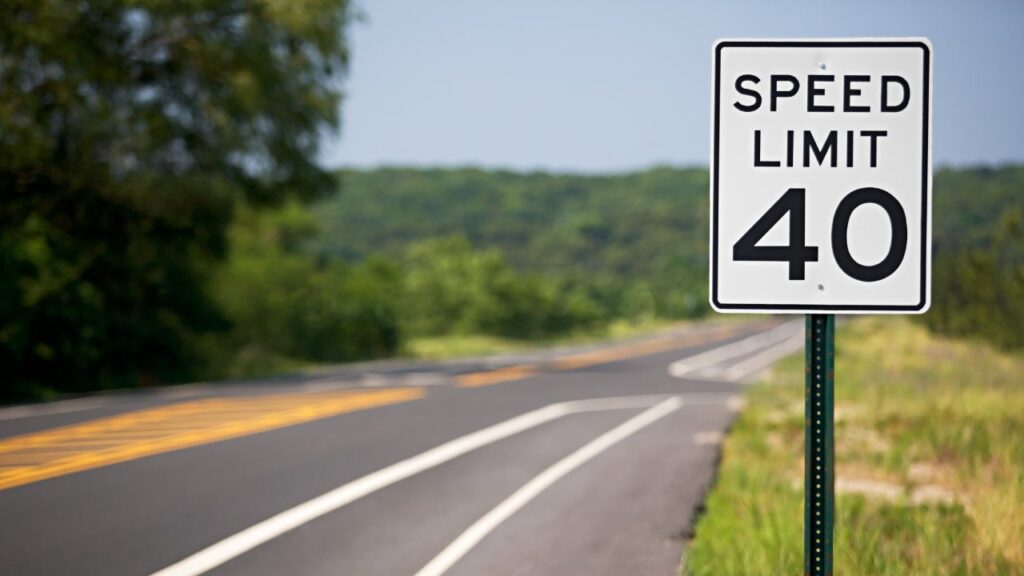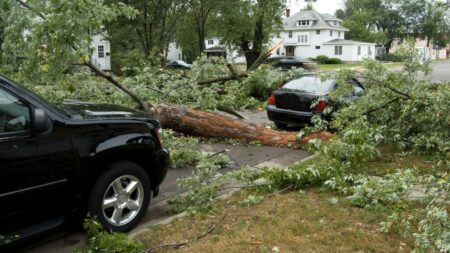In North Dakota, a speeding ticket is more than just a fine; it can increase the cost of your full coverage car insurance by about 19 percent on average. While speeding tickets are one of the most common traffic violations, they cause several consequences for your immediate and long-term budget. The average annual full coverage insurance rate in North Dakota without a speeding ticket is $1,885. Once you get a speeding ticket, that rate can jump to an average of $2,251.
How much is a speeding ticket in North Dakota?
In North Dakota, the fine for a speeding ticket depends on the severity of the violation and the type of road. For example, going 6-10 mph over the limit in a 55 mph zone results in a ticket cost of up to $10, while going 6-10 mph over the limit in a 70 mph zone results in a fine of up to $50. North Dakota speeding ticket fines range from as low as $5 to as high as over $180.
In addition, drivers who receive a speeding ticket in North Dakota may have points added to their driving record. The severity of the incident determines the number of points. Minor speeding tickets may result in no points, while severe speeding tickets may result in up to 15. Accumulating 12 points may result in license suspension for adults, while those under 18 may have their licenses suspended after just six points.Combined with state fines and increases in car insurance, the cost of a speeding ticket starts to add up. The average cost of full coverage car insurance in North Dakota is $1,885 for drivers with a clean driving record. After a speeding ticket, the average cost is $2,251 — 19 percent higher.
As of 2024, new North Dakota legislation allows insurance companies to access full driving records for policyholders. As a result, carriers can now see when drivers have received speeding tickets for between 1 and 15 miles per hour over the speed limits, which they didn’t have access to before. This may mean that drivers are being surcharged for lower-point speeding tickets.
The cheapest car insurance for North Dakota drivers with a speeding ticket
Combined with state fines and increases in car insurance, the price of a speeding ticket starts to add up. The average cost of full coverage car insurance in North Dakota is $1,885 for drivers with a clean driving record. After a speeding ticket, the average cost is $2,251 — 19 percent higher.
It can be challenging for North Dakota drivers with speeding tickets to find cheap car insurance, but it can help to compare rates with other carriers. Along with lower cost, it is important to remember other factors that matter to you when selecting an insurance company. Digital tools, customer service and coverage availability may also play a part in which carrier you choose. Below are the top five auto carriers offering the cheapest car insurance rates for North Dakota drivers with speeding tickets.
| Company | Avg. full coverage rate before speeding ticket | Avg. full coverage rate after speeding ticket | % difference after speeding ticket |
|---|---|---|---|
| American Family | $1,011 | $1,167 | 15% |
| USAA | $1,129 | $1,355 | 20% |
| Geico | $1,360 | $2,115 | 56% |
| Auto-Owners | $1,979 | $2,145 | 8% |
| Progressive | $1,609 | $2,222 | 38% |
What to do after a speeding ticket in North Dakota
If you receive a speeding ticket, you must pay the fine within 14 days to avoid additional fees. Drivers who ignore speeding tickets open themselves up to more severe penalties, such as a license suspension and even a bench warrant issued for their arrest. However, there are other steps drivers can take to mitigate the cost of receiving a speeding ticket.
Contest the ticket
Drivers looking to contest their speeding ticket would need to pay the bond, sign the citation and mail it in. If you win your case in court, the state will reimburse the bond amount back to you. Also, the speeding ticket will not appear on your motor vehicle report or be surcharged on your auto policy.
Search for discounts
Even if your driving record isn’t perfect, taking advantage of discounts may help keep your insurance rates down. Many insurance companies offer discounts that are easy to claim, such as savings for paying your premium in full, enrolling in automatic payments and taking a defensive driving course. Other common discounts to watch for include good student discounts, bundling discounts and telematics programs.
Compare rates with other carriers
Driving history can be a significant rating factor in car insurance. After a ticket, the amount that your premium could increase depends on your insurance company, driving history and the severity of the infraction. You may benefit from shopping around to see if another carrier could offer you a lower premium based on your new driving history.
Frequently asked questions
Methodology
Bankrate utilizes Quadrant Information Services to analyze November 2024 rates for ZIP codes and carriers in all 50 states and Washington, D.C. Rates are weighted based on the population density in each geographic region. Quoted rates are based on a 40-year-old male and female driver with a clean driving record, good credit and the following full coverage limits:
- $100,000 bodily injury liability per person
- $300,000 bodily injury liability per accident
- $50,000 property damage liability per accident
- $100,000 uninsured motorist bodily injury per person
- $300,000 uninsured motorist bodily injury per accident
- $500 collision deductible
- $500 comprehensive deductible
To determine minimum coverage limits, Bankrate used minimum coverage that meets each state’s requirements. Our base profile drivers own a 2022 Toyota Camry, commute five days a week and drive 12,000 miles annually.
These are sample rates and should only be used for comparative purposes.
Incidents: Rates were calculated by evaluating our base profile with the following incidents applied: clean record (base), at-fault accident, single speeding ticket, single DUI conviction and lapse in coverage.
Age: Rates were calculated by evaluating our base profile with the ages 18-60 (base: 40 years) applied. Depending on age, drivers may be a renter or homeowner. Age is not a contributing rating factor in Hawaii and Massachusetts due to state regulations.
Gender: The following states do not use gender as a determining factor in calculating premiums: California, Hawaii, Massachusetts, Michigan, North Carolina, Pennsylvania.
Read the full article here
















